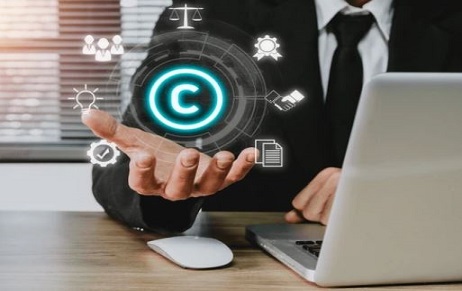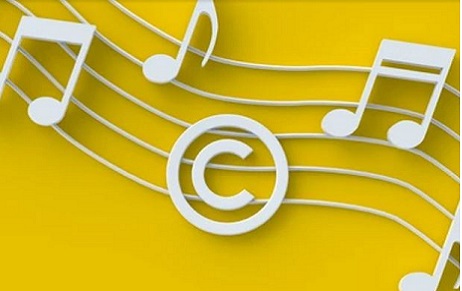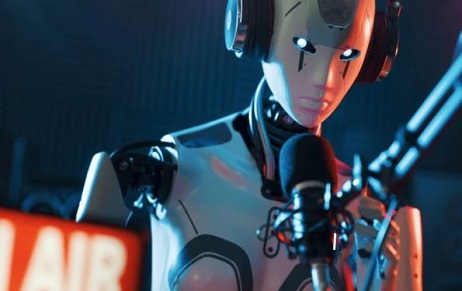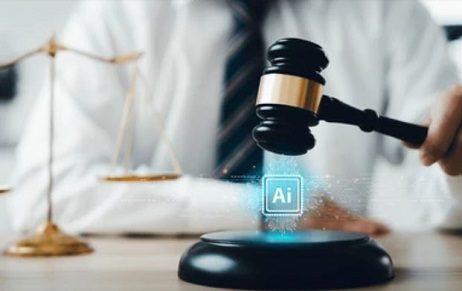Any successful café, restaurant, or retail establishment's environment is greatly influenced by its music. It…
Comedic Copyright: Safeguarding Creative Brilliance
“Bad Artists Steal, Good Artists Copy”
This famous quote from Pablo Picasso defines what creativity and innovation entails in the field of art. However, in comedy, the whole thing is a little shadier as far as joke stealing goes. So welcome to a world where each laugh is a melody while every punch-line can be a lawsuit in waiting! In this world where laughter reigns supreme there lies an important issue of joke theft. Yes, that is right! Like any other art form, comedy faces the problem of copyright protection.
Introduction
Laughter is said to be the best medicine; it has been used to lighten moods since time immemorial. From Shakespeare’s jesters to modern-day stand-ups, humour has always held a mirror up to cultural views and acted as a universal language. However, at this present era, in the age of technology and digital advancements, the comedy industry confronts a modern challenge – copyright law. As we all know in this dynamic world of show business, comedians are not simply performers but also savers and protectors of their creation.
Comedians of the past and present of all comic styles, skill levels, and success levels, either have suffered from or run the risk of becoming victims of joke theft.[1] Despite joke theft being a common malpractice among comedians, it is but a trite matter for the legislature and hence legal protection against it has been rare.
While both joke writers and comedians lose money when their jokes are stolen, the latter also suffers the additional pain of not receiving the emotional satisfaction from performing as a result.
Understanding Copyright Basics
When it comes to the realm of comedy, copyright law serves as a vigilant protector safeguarding comedians’ intellectual creations against abuse or theft. Now imagine this; a comedian walks on the stage with only a microphone in his hand and a reservoir of wit. As they spin their tales and weave their jokes, they are not just entertaining; they are crafting. And just like any other artist, they also deserve to be protected for what they produce. This is where copyright law plays its important role.

Another aspect of copyright is that it gives an artist the right to reproduce, distribute, perform and display his work which altogether make up a legal framework that promotes creativity and ensures creator’s financial wellness. Comedy is an art form that can be widely expressed through copyright protection ranging from comedy writing, to skits and stand-up performances. Because every joke or punchline or comedic bit could be one deserving of legal protection.
There are many parts in a comedic work which can be copyrighted such as witty dialogues, uproarious storylines or the act performed on stage. For example, if you have seen the recent stand-up comedy of Akash Gupta – ‘Indian Cricket fans and Virat Kholi,’ where he not only delivered jokes but also performed act on the stage. In such types of stand-up comedy performance, it is not only the joke or punchlines that brings laugh but it is the expression or the act of the comedian that brings laughter
If comedy has any originality and individuality in it, then copyright protection can be given to it. For example, expressions of comedic ideas such as catchphrases, gestures, or comedic timing can be copyrighted, by copyright law if they met the originality criterion. However, there is need to differentiate between components that qualify for copyright protection and non-copyrightable ideas. Although copyright protects an idea’s expression, it does not shield the underlying concepts or themes themselves. Therefore, two comedians working with similar comic themes or premises will not infringe each other’s copyrights as long as they express those concepts in an exceptional manner and in their own way. It is like having a recipe for cake – everyone knows what ingredients go into it but it’s the baker’s touch that renders each cake special.
Copyright covers everything from punchlines to storytelling; delivery to timing; improv to everything else that differentiates a comedian from another performer. In legal terms Copyright protects creative works and certainly putting together a stand-up act in a creative manner.
The Comedy Copyright Conundrum
Comedy, as a vibrant domain where laughter reigns supreme and wit knows no limits, poses one pertinent question that lingers around: Can two comedians lay claim to the same joke? And the answer somewhere lies between yes and no. If in-case, two comedians come up with the same joke separately, then they each own the rights to their own version of it, just like finding a treasure that they both get to enjoy. But, if someone makes use of your jokes without consent, then it can lead to a tangled legal tussle, just like trying to find your way through a maze to get justice.
The Balancing Act: Fair Use and Comedy
In the world of comedy, fair use serves as tightrope for comedians; it enables them to borrow from each other’s works on condition that they do not infringe another person’s right. It’s like having a safety net when walking a tightrope of humour. It ensures that laughter keeps going without getting stuck in legal sludge.
Amongst this comedic cacophony Indian Copyright Act 1957 offers solace for comedians. The Copyright Act provides some safeguards in terms of creativity as well as artistic skill involved in stand-up comedian’s performances. The road to legal vindication is however fraught with challenges requiring clear demonstration of authorship and the distinction of specific aspects as seen in Eastern Book Company v. D.B. Modak[2] case.
Section 52 of the Indian Copyright Act, 1957 provides for copyright exceptions under which falls the ‘doctrine of fair use’. An impressive amplification of this doctrine may be found in Civic Chandran v. Ammini Amma,[3] where three tests were identified by the court to determine infringement: severity of criticism, the purpose of work and the degree of likelihood between the two works.
Interestingly, once a comedian’s joke is repeated, the competition between the original and copied versions diminishes. This makes it difficult for copycats, since a joke is copied and performed on stage, it no longer vies for the audience’s attention, thus bordering on infringement. In the case of Universal Pictures Co. v. Harold Lloyd Corp.,[4] it was emphasized that, repetitive employment of comedy reduces its value; thus, comedians should be limited by fair use principle within the realm. Since then, it has undergone three amendments and courts have to apply it differently to stand-up comedy which is still new so as not to kill creativity due to fear of intellectual property rights infringement.
The Legal Hurdles: Fights and Advancements
In the world of comedy, legal disputes are as famous for their intricacy and unpredictability as the performances they strive to safeguard. These battles, ranging from past landmark suits to recent legal tiffs, provide a foundation upon which the comedy industry’s intellectual property protection rests.
For example, Foxworthy vs. Custom Tees[5] was a remarkable case that shook up the world of comedy in 1995. This happened when stand-up comedian Jeff Foxworthy got into a legal dispute with a company that sold t-shirts of his “You might be a redneck if…” jokes without getting his consent. That courtroom became a stage where the two parties fought against one another – the Foxworthy’s lawyers brought evidences of how he was innovative and had unique humorous touch on him; and Custom Tee’s team tried to prove in court that their tees were not copyrighted or used for any other commercial purposes except expressing satire on some social issues. Every move made in this legal chess game was carefully calculated as the victory symbolized not only justice but also the defence of artistic autonomy.
Furthermore, as of 2022, an iconic personality in Indian comedy, Vir Das had a copyright issue with one of the fellow comedians who was claimed to have stolen some of his comedy materials. Just, like Foxworthy had been before him, Das stood firm in his defence of his creative work, navigating the intricate legal terrain with tenacity and determination.
However, in such legal battles, there remains parallel struggle that invariably rages on the front lines of comedy community – the fight to preserve and protect control over creative content. While each case has its own peculiarities, what underlies all is the stubbornness of an artist who trusts the artistic value of their output and defends their independent voice.
Consequently, when a court delivers a ruling in favour of the comedian, it appears not only as a victory over a juridical battle but it also makes known that Creative Excellence deserves appreciation and respect from the justice system through thunderous applause.
The Merger Doctrine: Navigating Originality
In stand-up comedy, the basic feature is originality, which determines how comedic content is built. However, it appears simple, but the merger doctrine confuses this situation with arguments such as the theory that ideas and their expression can be inseparable in some instances. In Continental Insurance v Beardsley[6] and similar cases, which navigates the tightrope between the idea and expression, shaping the boundaries of copyright protection within the realm of comedy.
The merger doctrine plays a crucial role in balancing creative freedom and intellectual property rights. It establishes the boundary between inspiration and imitation by focusing on the originality of expressions rather than ideas. Courts utilize this legal tool to reaffirm the value of maintaining a delicate balance between innovation and copyright laws in the dynamic realm of comedy.
Conclusion
In this dynamic world of comedy universe, the connection of comedy with Copyright Law represents the significance of legal literacy for comedians and creators. However, it may be something more than just law-abiding citizen for comedians to resolving their creative works and ensuring that they are better protected by copyright laws: through this they can prevent copying acts while at the same time dictate on how best their copyrighted materials should be utilized. This understanding helps create a comics’ society that will never fade away despite its timeless jokes.
The adoption of these principles by comedians who want to protect their artistic productions and ensure that their comedy talents outlive them necessitates respecting copyright as well as regulating commercial activities related to one’s own work as an entertainer. Through incorporating copyright into comedy, these artists are preserved in history and acknowledged accordingly so that future generations also acknowledge their great minds. And thus, with this confidence, comedians may share their laughter with an international audience secure in the knowledge that they will leave behind a lasting heritage of creativity.
Author: Divya Bhushan, in case of any queries please contact/write back to us via email to chhavi@khuranaandkhurana.com or at IIPRD.
[1] Dotan Oliar and Christopher Sprigman, There’s No Free Laugh (Anymore): The Emergence of Intellectual Property Norms and the Transformation of Stand-Up Comedy, 94 Virginia L. Review 8, (December, 2008)
[2] 2008 (36) PTC 1 (SC)
[3] (1996) 16 PTC 329 (Ker.)
[4] 162 F.2d 354, 363 (9th Cir. 1947)
[5] 879 F. Supp. 1200 (N.D. Ga. 1995)
[6] 253 F.2d 702 (2d Cir. 1958)



